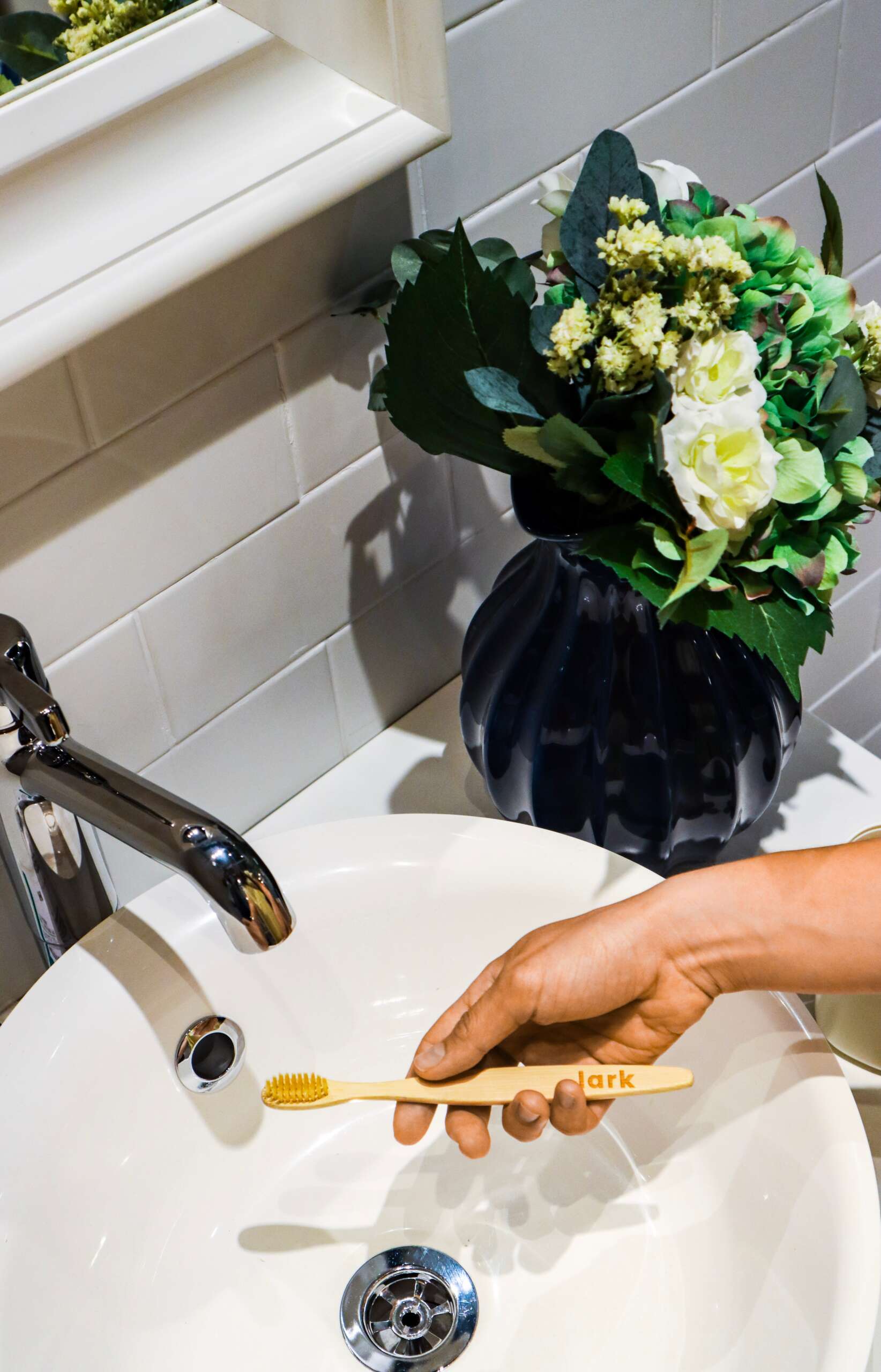No Stress Ways To Have An Eco-Friendly Bathroom

Share This Article
| All products featured on The Wellness Feed are independently selected by our editors for its environmental and ethical impact. However, when you buy something through our retail links, we may earn an affiliate commission. |
Being eco-friendly is all about putting one foot in front the other to commit to small lifestyle changes. Over time each of those changes can add up to reduce your water use, plastic pollution and CO2 emissions. Last year, John Hopkins University released the Sustainable Living Guide offering recommendations to minimize their student’s environmental impact. Some of these suggestions are in-line with Baltimore’s larger waste-free and recycling guidelines. While both the university and the city touched on various areas of our lives- from diet and food to self-care- this article expands on their suggestions for one area that we can all make quick changes; our bathrooms.
Since they’re rooms in the house that have a constant rotation of products like soaps and cleaners, it’s easy to make a change to choose a more eco-friendly product during your next shopping trip. Here are the top easy-to-follow eco-friendly alternatives, along with a few reasons why you might want to consider using these products instead of their conventional counterparts.
Bulk Up On Soap Bars

A classic bar of soap can actually be gentler on your skin and the environment when compared to liquid body washes. More often than not it’s due to one word, plastics. Liquid soaps are packaged in plastic bottles and pumps. Depending on the type of plastic used they can be reused or recycled. Unfortunately, most of those fancy bottles aren’t being recycled. It’s estimated that 552 million bottles end up in landfills each year, because only 1 in 5 people consistently recycle products in their bathroom. Body wash or liquid soap formulas can also have plastic in their formulas in the form of exfoliating plastic beads.
Look for classic bar soaps made with natural oils and butters (like shea, olive or coconut) and natural plant extracts. These will be moisturizing and nourishing for your skin. Support brands that use paper packaging and be sure to break up the boxes and place them in your recycling bin. Even better, visit stores that offer bar soaps in bulk allowing you to either bring your own bags for packaging or to put a few in the same bag to reduce waste.
Invest In Reusable Cotton Rounds & Swabs

Conventional cotton has a hefty environmental price tag. According to the World Wildlife Fund, 2 pounds of conventional cotton requires 5200 gallons of water. Adding to that, a lot of water runoff from cotton plants is contaminated with the pesticides and chemicals used to grow and treat cotton plants and this can degrade the soil.
If you use cotton rounds for makeup removal or for other self-care practices, invest in reusable cotton rounds instead of buying a new pack of cotton rounds bi-weekly. You can wash and reuse these rounds again and again for a year or more. In the end, you’ll reduce water waste, the need of virgin plastic and cotton and will help to support sustainable brands offering products that look to long-term recycling.
Try Solid Toothpaste or Tabs

It’s estimated that 1.5 billion toothpaste tubes make it into our landfills yearly. And, those plastic containers don’t go away slowly. They can take 500 years to decompose. Also, popular formulas contain phosphorus which is known to help remineralize the tooth’s enamel. Unfortunately, phosphorus goes down our sink and leaks into our water resources where it disrupts the local eco-system by prompting algae blooms that produce algal toxins.
Solid toothpaste tabs are a concentrated form of toothpaste without excess water in the formulas. Generally, they’re products from brands with a natural or environmentally focused ethos. So, these formulas are made with carefully chosen ingredients for their environmental and human health impact. Packaged in glass jars, some can be refilled through subscription services were compostable or recyclable paper mailers are sent with a refill of the new toothpaste tabs.
Clean With Refillable Products

Commercial cleaning products have a long history of being potentially hazardous to our health and that of the planet. Chemicals in sprays are released into the environment and can be ingested through nasal passages by people using them. Contact through the skin is another known way to cause irritation. When cleaners are washed into the sewage system ingredients such as the commonly used ethoxylates have been shown to have adverse effects on the reproductive organs of wildlife. When it comes to plastic packaging, these products add to landfill waste through the high rotation cycle.
Even though there are a few great cleaners on the market, a lot of them are packaged in plastic bottles that might not be recyclable. Similar to the solid and refillable model of toothpaste tabs, some brands are now offering solid cleaners. These concentrated formulas can be added to bottles along with water for a cleaning solution that doesn’t require going through multiple bottles each month. Instead, a small packet of concentrated cleaning tabs are sent monthly to minimize plastic use and ensure that you have an eco-friendly bathroom.
